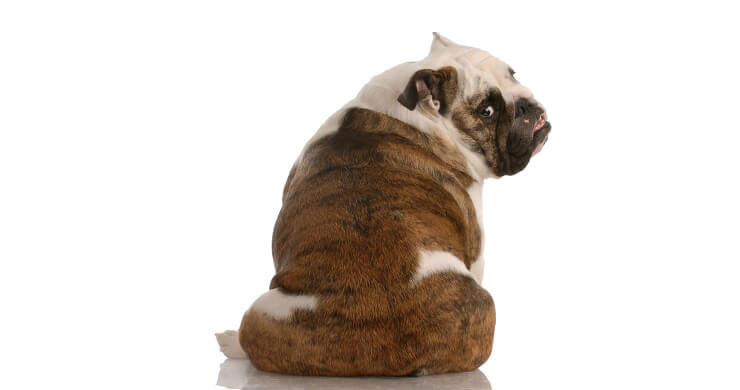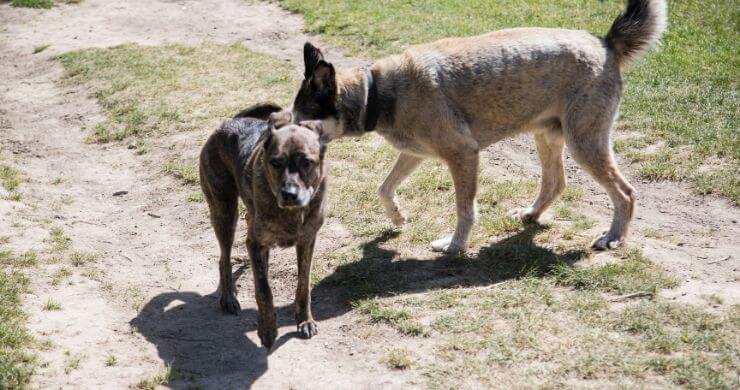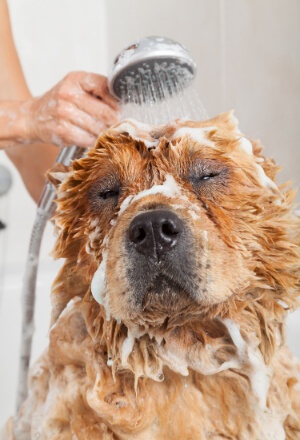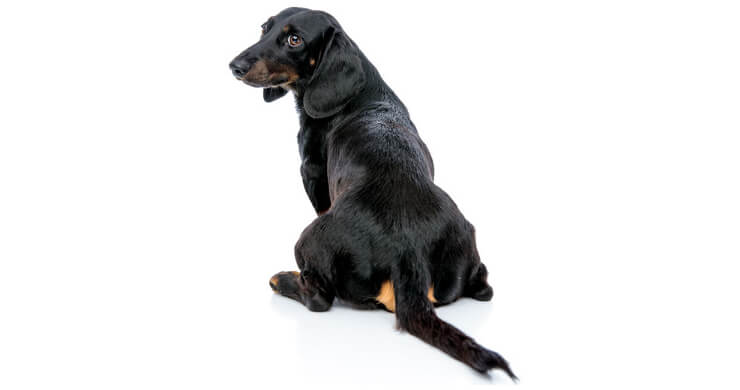Ever wondered why dogs sometimes drag their butt on the floor? Dogs can have some endearing habits. Your pet can make your heart melt when it lays its head on your lap or rolls over to have its tummy tickled. They can also have some really irritating habits. One of the most annoying is scooting their butt along the floor.
Veterinarians have a catch-all term for this habit of butt scooting. They call it perianal irritation. That simply means that your dog has an itchy bum.
Having a general diagnosis is fine, but it still doesn’t tell us what is causing the itchiness or what we can do about it to make the dog more comfortable. Most dogs don’t want to drag their bums across the floor in such an undignified way. Sadly, it’s the only way they know of dealing with the itchiness.

So, let’s look at the various reasons your dog is itching around its anus and seeing what dog scooting treatments are available.
We all want our dogs to stop scooting. If you have guests over, and your dog starts butt scooting across the floor, it’s pretty
embarrassing.
- Butt scooting in dogs is caused by an itchy bum or some other sort of irritation or problem with their bum.
- Scooting is the only way the dog knows how to handle its itchiness.
- The irritation or itchiness may have different causes, where anal sacs problems are most common.
Causes Of Dog Scooting
So here are some possible causes of a dog’s itchy butt and how to deal with them:
- The Anal Sacs
- Food Allergies
- Worms
- Diarrhea
- Dingleberries
- Genital Irritation
- Excessive Grooming
Anal Sacs
Problem with anal sacs are the most common cause of itchy bums in dogs.
We have all seen a dog sniff around another dog’s bum. It’s how dogs find out about the other dog. Every dog has an individual scent. This comes from the two anal sacs that sit on either side of a dog’s anus.
These sacs contain a secretion that is released each time a dog produces poop. The secretion contains information about the dog, which another dog can interpret when sniffing around the anus. The scent does not give a full biography but tells the other dog enough information to satisfy its curiosity.

The secretion held in the sacs has to flow out through very narrow ducts. These ducts can become clogged, which in turn leads to the sacs swelling. The dog finds this uncomfortable and rubs its bum across the floor to try to get the secretion moving again.
The sacs can also become infected. Again the dog will find this uncomfortable and even painful. Any sign of blood should alert you to this problem. The dog might also be licking its bum frequently and also appear to be off-color.
Some breeds of dogs are susceptible to cancer in the anal sacs. A tumor will slowly grow in a sac, eventually blocking it.
How To Deal With Anal Sac Problems
- Increase the fiber in your dog’s diet. Add grated raw vegetables to the dog’s food, add bran or introduce a fiber supplement (talk to a vet before doing the last one). The aim is to produce a firm stool that is big enough to squeeze the anal sacs as it is passed.
- Watch for signs of diarrhea. Runny poop does not squeeze the anal sacs at all and needs to be cured to get things back to normal. If diarrhea results from an upset stomach, then apply a cure as soon as possible.
- Hands-on. Also known as manual expression’. The sacs will need to be emptied by hand. Usually, your vet will carry out this procedure, but you can learn how to do it yourself. Some dogs never need this to be done, while others require it quite frequently – maybe as often as every couple of weeks.
- Sac removal. It is not common these days for a dog to have its anal sacs surgically removed. Very much a last-resort as there can be complications.
Food Allergies

Some dogs do suffer from allergies. Itchy bums are often caused by food allergies. Once you have identified the cause of the allergy, switch your dog to a hypoallergenic diet. In other words, leave the allergen out of the dog’s diet, and all should be well. A food trial to identify the allergen will probably be necessary.
Medication is possible to combat allergies, although food allergies don’t respond well to this medication type. Some medications have side effects that could add to your dog’s discomfort. Seek advice from your vet as to which medication is the best in your particular case.
Worms
Your dog must be regularly wormed, especially against tapeworms. Not all worming preparations are effective in killing tapeworms, so check you are using the correct one. Tapeworm eggs get transported to the anus and appear like tiny white seeds on the outside. These irritate and scooting is the result.
Dogs pick up tapeworms from both fleas and eating dead vermin. Remove any dead vermin you find. Be extra vigilant if you have had reason to combat vermin on your property.
Diarrhea
Diarrhea not only causes inadequate emptying of the anal sacs, but it can also result in other problems. Diarrhea can make the anus sore through scorching. It can also lead to infections.
You can take several steps to clear diarrhea and ease its effects. Take care with your dog’s diet. Easily digestible food that is not too rich should be served to your dog. Keep your pet away from tempting morsels or scraps. Do not allow your dog to eat the food put out for another of your pets. While suffering from diarrhea, meals should be small and frequent.
Keep your dog’s bum clean. Use a mild saltwater solution to clean its bum after each poop. If more than 2 days go by and there is no improvement, take your dog to the vet!
Dingleberries
These are little lumps of poop that get tangled in your dog’s fur. Long-haired dogs suffer more with them. Sometimes the dingleberries can block the dog’s anus giving it pain and discomfort.
Keep the fur around your dog’s bum short. Trim it regularly to prevent poop sticking. Ensure that your dog is cleaning its bum properly. Avoid soft feces and diarrhea by feeding a healthy balanced diet.
Genital irritation
Female dogs might suffer from irritation around their genitals. This can be largely avoided by regularly checking the area: cutaway any knotted fur and clean any discharge from her vagina. Cleanliness will do much to reduce irritation and the resultant scooting.
Excessive Grooming
Dogs that are groomed frequently may experience itching or irritation related to the grooming. Dog shampoo or sprays used around the dog’s bum area may cause irritation in some dogs.

Suppose your dog’s butt scooting problem continues. In that case, it’s wise to contact a veterinarian to get help for your dog and sort out any underlying issues that may cause the scooting. You want your dog to stop scooting.

